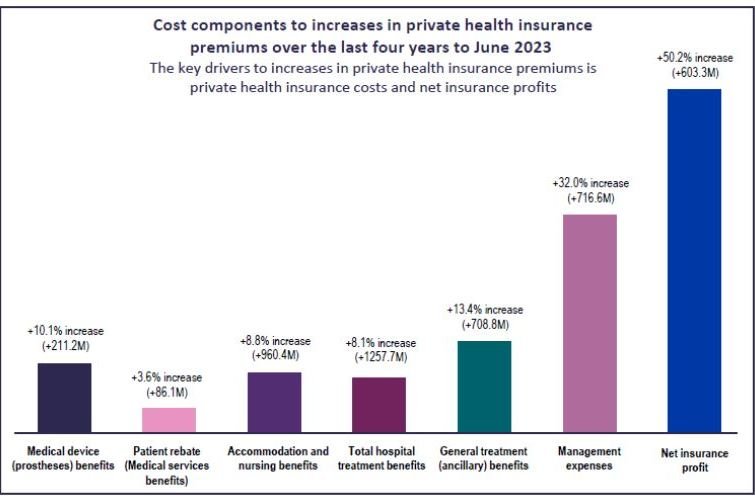The National Cabinet met today to take further decisions to save lives, and to save livelihoods.
The Chief Medical Officer Dr Brendan Murphy provided an update on the measures underway, the latest data and medical advice in relation to COVID-19.
There are more than 6,600 confirmed cases in Australia and sadly 71 people have died.
Australia will continue to progress a successful suppression/elimination strategy for the virus. National Cabinet noted data that confirms the measures put in place to suppress the virus have largely been successful in slowing and reversing the growth of cases in Australia, to ensure our health system has the capability to manage the epidemic.
It is estimated that overall, Australia is currently detecting approximately 92 per cent of all symptomatic cases, with each state and territory individually detecting at least 80 per cent. Australia’s point estimate when compared with other countries is 84 per cent, the highest reported detection rate globally.
For COVID-19 suppression strategies to be effective, Reff (the number of people a single case infects on average) needs to be less than 1.0. The results continue to look very encouraging.
To continue to suppress COVID-19, National Cabinet has commenced further work on Australia’s public health response including enhanced testing, tracing and local health response capabilities. This work will feed into National Cabinet’s review of baseline restrictions by 14 May 2020.
National Cabinet was briefed on the new app currently under development to support state and territory health authorities to notify close contacts of a person diagnosed with COVID-19. National Cabinet provided its in-principle support for the app. The Government will provide further information on the app closer to its release.
National Cabinet agreed to meet again on Friday 24 April 2020.
Elective surgery
National Cabinet received up-to-date data on the stock of personnel protective equipment (PPE) in the National Medical Stockpile, and PPE held by state and territory health systems. PPE stocks and other equipment such as ventilators are now largely sufficient to meet expected demand for Australia’s COVID19 response through to December 2020, with current social distancing and travel restriction measures in place.
National Cabinet noted that the National Medical Stockpile does not replace state, territory or private processes to source and deliver PPE to meet their needs. To date, the National Medical Stockpile has dispatched over 22 million masks primarily to state and territories, GP’s, Community Pharmacy, ACHHOS and aged care, with a further 11.5 million being dispatched this week.
Unnecessarily delaying elective surgeries can worsen health outcomes, increase anxiety and reduce social and economic productivity.
As result of Australia’s success in flattening the curve, our low rates of COVID related hospitalisation and new data on stocks of PPE, National Cabinet agreed that from 27 April 2020, category 2 and equivalent procedures can recommence across the public and private hospital sectors.
As result of Australia’s success in flattening the curve, our low rates of COVID related hospitalisation and new data on stocks of PPE, National Cabinet agreed that from 27 April 2020, category 2 and some important category 3 procedures can recommence across the public and private hospital sectors.
National Cabinet further agreed that the following procedures can recommence from 27 April 2020:
- IVF
- Screening programs (cancer and other diseases)
- Post cancer reconstruction procedures (such as breast reconstruction)
- Procedures for children under 18 years of age.
- Joint replacements (incl knees, hips, shoulders)
- Cataracts and eye procedures
- Endoscopy and colonoscopy procedures
PPE stocks for these elective surgeries and procedures will not be taken from the National Medical Stockpile.
It is estimated that a gradual restart of elective surgeries will see 1 in 4 closed elective surgery operating lists reopen, with flexibility for states to determine the appropriate levels of elective surgery within this general framework
Reintroduction of elective surgery in a staged manner balances the ongoing need for the capacity to treat COVID-19 patients, while allowing our hospitals to treat elective surgery patients.
These arrangements will be reviewed by 11 May 2020, to determine if other elective surgeries and procedures can recommence and volumes increased.
National Cabinet further agreed to the Australian Dental Association recommendation that dentists move to level 2 restrictions (such as fitting dentures, braces, non-high speed drill fillings and basic fillings), allowing a broader range of dental interventions to occur where the risk of transmission can be managed and PPE stocks procured by the private sector.
National Cabinet again thanked Australia’s health care professionals for their work to support our COVID-19 response.
Aged Care Response
National Cabinet discussed the lessons learned from recent COVID-19 outbreaks in residential aged care facilities and acknowledged the critical importance of adequate infection prevention and control measures in minimising the spread of COVID-19.
It is not acceptable, fair or compassionate for any residential aged care facilities to ban visits from carers and families.
National Cabinet reconfirmed the principles announced on 18 March 2020 regarding visits to aged care facilities. In line with these principles, visits should be limited to a short duration, a maximum of two visitors at one time per day, and conducted in line with social distancing practices. This is designed to limit the spread of COVID-19 in residential aged care facilities.
Infection prevention and control measures must be balanced against the needs and best interests of residents. Aged care providers are best placed to make these assessments on a case by case basis.
National Cabinet also reiterated that the following visitors and staff (including visiting workers) should not be permitted to enter the aged care facilities:
- Those who have returned from overseas in the last 14 days;
- Those who have been in contact with a confirmed case of COVID-19 in the last 14 days;
- Those with fever or any (even mild) symptoms of acute respiratory infection (e.g. cough, sore throat, runny nose, shortness of breath); and
- Those who have not been vaccinated against influenza (after 1 May).
All Governments are committed to protecting and supporting elderly and vulnerable Australians and are working together, with aged care providers, to manage infection control. This extends to supporting health and aged care workers to be safe and healthy while at work, including appropriate use of PPE and screening of staff.
Family members who may be concerned about the care being provided to loved ones in residential aged care facilities are encouraged to contact the Aged Care Quality and Safety Commission.
Schools
National Cabinet re-emphasised that the one person per four square metres rule does not apply in school classrooms. Schools should consult the most recent AHPPC advice, issued on 16 April 2020.







